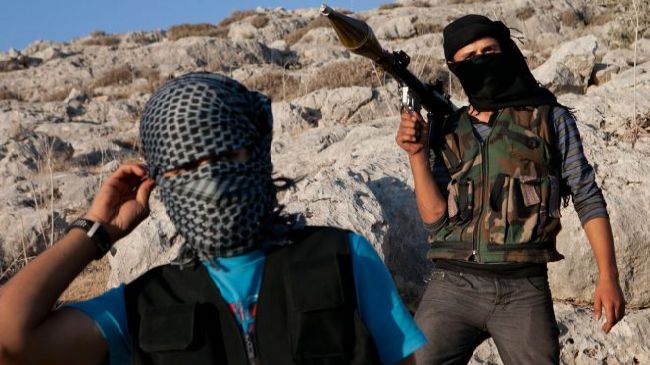Al-Qaeda bond divides Syria opposition


Syria’s opposition has distanced itself from the foreign-backed al-Nusra Front militant group, after al-Qaeda in neighboring Iraq confirmed its merger with the terrorist group.
“We do not merit the ideology of al-Qaeda and Syria’s [so called] revolutionaries must make clear decision about this issue,” former leader of Syria’s opposition National Coalition Ahmed Moaz al-Khatib said Wednesday.
The so called Free Syrian Army (FSA) also insisted that the alliances it had struck with Nusra fighters on the ground were only tactical, and “The Nusra Front is not attached to the FSA.”
“There has never been and there will never be a decision at the command level to coordinate with Nusra. The situation on the ground is what has imposed this,” FSA spokesman Louay Mokdad said.
The deep division among the Syrian opposition groups was created after the al-Qaeda-inspired Islamic State of Iraq network announced merger with Syria’s foreign-backed and terrorist Jabhat al-Nusra (Victory Front) to play an even greater role in the Syrian conflict.
In a 21-minute audio message posted on militant websites late on Monday, Abu Bakr al-Baghdadi, the leader of the Islamic State of Iraq, said his group had trained and funded militants from Syria’s Jabhat al-Nusra since the early days of the Syrian crisis.
He added that the two groups would operate under the joint title of the Islamic State of Iraq and the Levant.
The unrest in Syria began in March 2011, and many people, including large numbers of soldiers and security personnel, have been killed in the violence.
The Syrian government says that the chaos is being orchestrated from outside the country, and there are reports that a very large number of the militants are foreign nationals.







